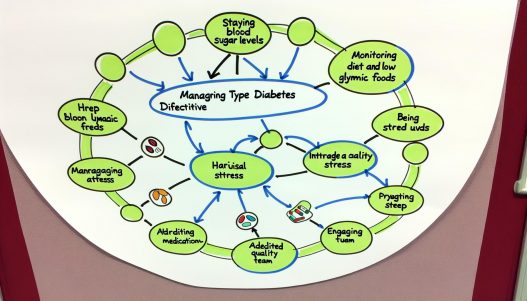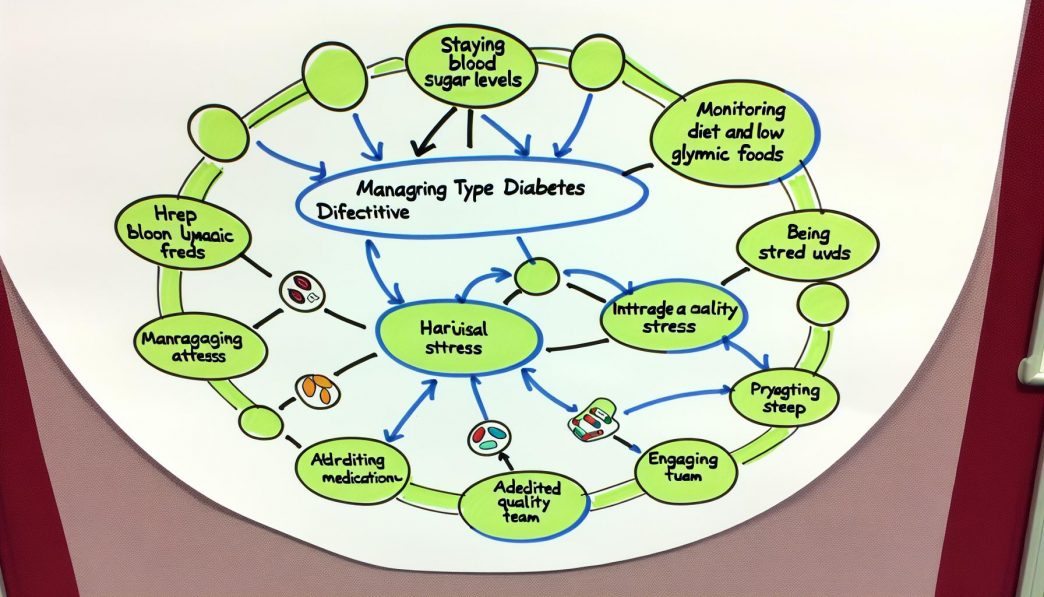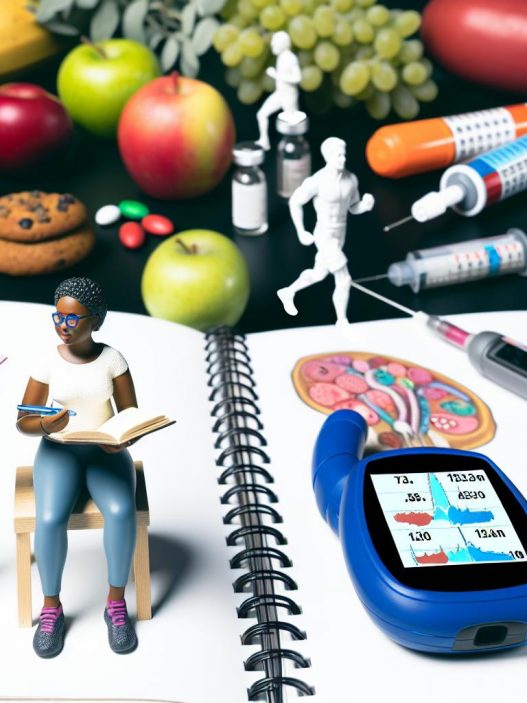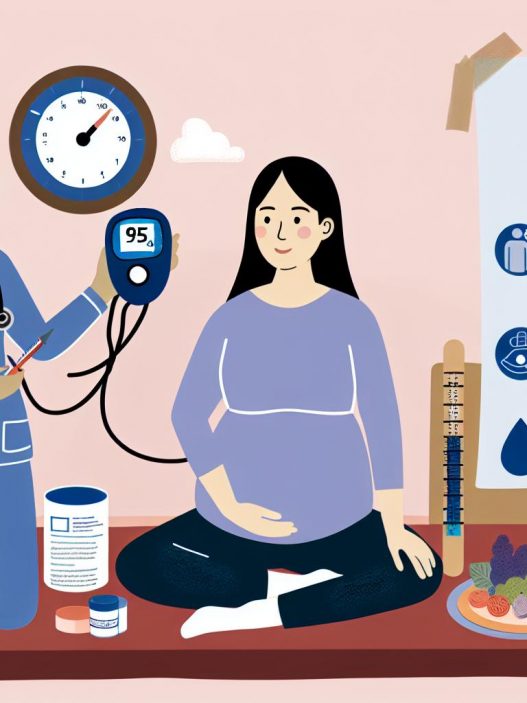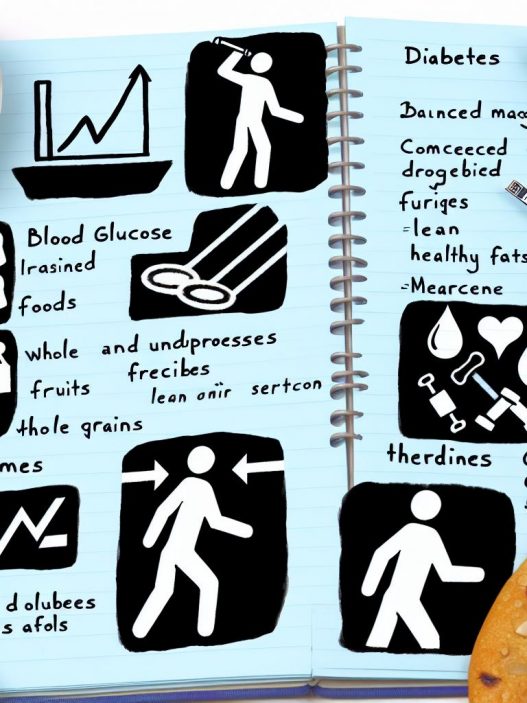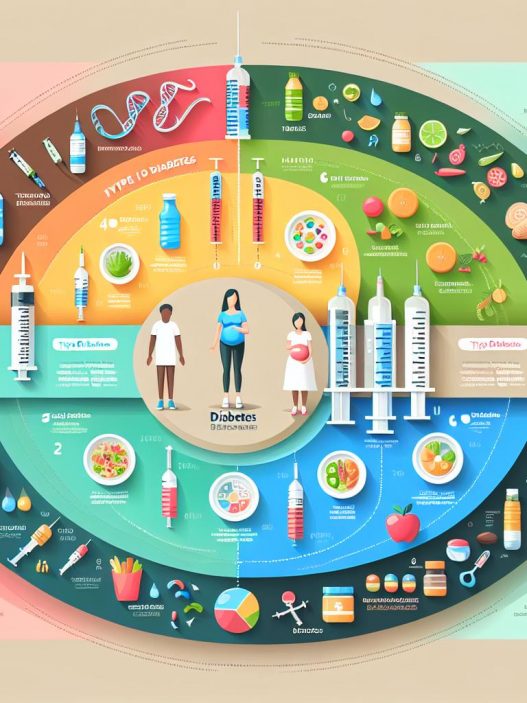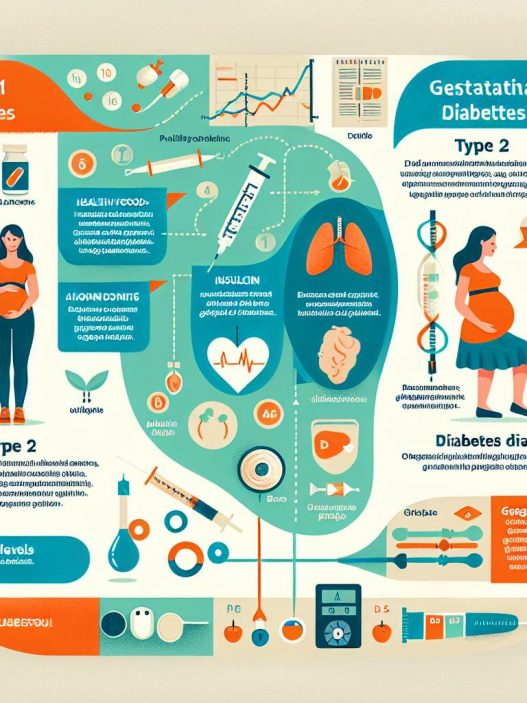# 10 Practical Tips for Managing Type 2 Diabetes Effectively
Managing Type 2 diabetes can often feel overwhelming, but with the right strategies, it is entirely possible to lead a healthy and fulfilling life. This guide provides practical tips that are both manageable and effective in controlling your blood sugar levels. Implementing these strategies will not only enhance your well-being but also help prevent complications associated with the condition. Discover how to take control of your diabetes with these ten practical tips.
1. Understand Your Condition and Keep Learning
Understanding Type 2 diabetes is the first step in managing it effectively. Knowledge empowers you to make informed decisions about your lifestyle, treatment options, and daily routines. Familiarize yourself with how diabetes affects your body, including how insulin resistance develops and the potential risks if the condition remains unmanaged.
Additionally, keep abreast of the latest research and treatment options. Participate in diabetes education programs, webinars, or support groups. By staying informed, you can better navigate challenges and discover new ways to keep your blood sugar levels within target ranges.
2. Monitor Blood Sugar Levels Regularly
Regular monitoring of your blood sugar levels is critical in managing Type 2 diabetes. Use a glucose meter to check your levels multiple times a day, particularly before and after meals. Keeping a log of these readings will help you identify patterns in your blood sugar levels and understand how different foods, physical activities, and medications affect your body.
Understanding these patterns is essential for ensuring appropriate responses to fluctuations. For example, if you notice a consistent spike in your blood sugar after certain meals, adjustments to your diet or medication may be necessary. This proactive approach can lead to better overall diabetes management.
3. Adopting a Healthy Diet
A well-balanced diet is one of the cornerstones of effective Type 2 diabetes management. Emphasize whole foods, including fruits, vegetables, whole grains, lean proteins, and healthy fats. Pay close attention to portion sizes, and consider carbohydrate counting as part of your meal planning.
Incorporate foods that have a low glycemic index (GI), as they help maintain steady blood sugar levels. These foods digest slowly and result in smaller glucose spikes compared to high-GI foods. Regular meal planning and preparation can also reduce the temptation to choose unhealthy options when hunger strikes.
4. Stay Hydrated
Hydration plays a crucial role in managing Type 2 diabetes. Water is the best choice, as it hydrates without adding calories or sugar to your diet. Aim for at least eight glasses a day, but be cautious of beverages that contain sugar or caffeine, as they may affect your blood sugar levels adversely.
Staying well-hydrated helps your kidneys function properly, a key consideration for those with diabetes. Proper kidney function aids in efficiently filtering excess sugar from the bloodstream. Additionally, drinking enough water can help reduce hunger and prevent overeating.
5. Engage in Regular Physical Activity
Physical activity is another vital factor in effective diabetes management. Exercise helps lower blood sugar levels by increasing insulin sensitivity and allowing muscle cells to utilize glucose for energy. Aim for at least 150 minutes of moderate-intensity aerobic activity, such as walking or cycling, each week.
Furthermore, incorporating strength training exercises at least twice a week can also be beneficial. It helps build muscle mass, which can enhance metabolic rate and improve overall health. Always consult with your healthcare provider before starting a new exercise regimen, especially if you have existing health issues.
6. Manage Stress Effectively
Chronic stress can have a significant impact on your blood sugar levels. When under stress, the body releases hormones such as cortisol, which can lead to elevated glucose levels. Therefore, finding ways to manage stress is essential.
Consider incorporating relaxation techniques into your routine. Practices such as yoga, meditation, mindfulness, or even simple breathing exercises can help alleviate stress. Engaging in hobbies, spending time with loved ones, and ensuring that you take time for self-care are equally important in managing stress and promoting overall well-being.
7. Prioritize Sleep Hygiene
Quality sleep is critical for effective diabetes management. Lack of sleep can adversely affect your body’s sensitivity to insulin, increasing the likelihood of blood sugar spikes. Aim for 7 to 9 hours of quality sleep each night, and establish a consistent sleep routine to encourage healthy habits.
Creating a conducive sleep environment is essential. Limit exposure to screens before bedtime, and ensure your sleeping area is comfortable, dark, and quiet. If you struggle with sleep disorders, such as sleep apnea, consider discussing these concerns with your healthcare provider for appropriate evaluation and treatment.
8. Take Medications as Prescribed
If your healthcare provider has prescribed medications to help manage your Type 2 diabetes, it is crucial to adhere to the recommended regimen. Medications can play a vital role in controlling blood sugar levels and preventing complications.
Always consult your healthcare provider if you experience any side effects or have concerns about your prescriptions. Additionally, engage in open discussions about any changes in your health or lifestyle that may require adjustments to your medications or treatment plan.
9. Regularly Consult with Your Healthcare Team
Establishing a strong partnership with your healthcare team can greatly benefit your diabetes management plan. Regular appointments with your doctor, dietitian, and diabetes educator ensure that you receive continuous support, education, and motivation.
Use these appointments as opportunities to discuss your blood sugar logs, dietary choices, exercise routines, and any concerns you may have. Your healthcare team can help make necessary adjustments to your management plan and provide valuable insights tailored to your unique lifestyle and health situation.
10. Stay Mindful of Alcohol Consumption
While it is possible for individuals with Type 2 diabetes to consume alcohol in moderation, it is crucial to be aware of how alcohol can affect your blood sugar levels. Alcohol can cause both spikes and drops in blood sugar, depending on the amount consumed and whether it is ingested with food.
If you choose to drink, consider doing so with food to help stabilize blood sugar levels. Always check with your healthcare provider to understand how alcohol may influence your diabetes management plan, especially if you are taking medications that could interact with alcohol.
In conclusion, managing Type 2 diabetes requires a multifaceted approach that incorporates understanding your condition, making informed dietary choices, engaging in physical activity, managing stress, and working closely with healthcare professionals. By following these ten practical tips, you can effectively manage your diabetes and lead a healthier, more fulfilling life. Remember, the journey may have its challenges, but with patience and perseverance, you can thrive with Type 2 diabetes.










